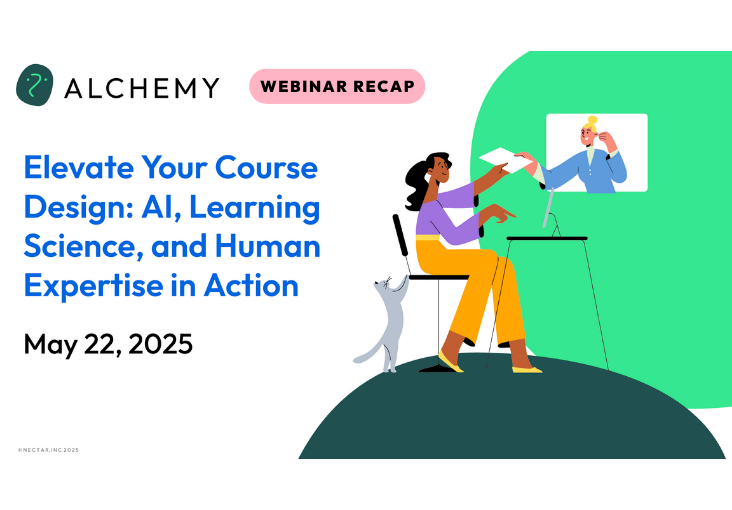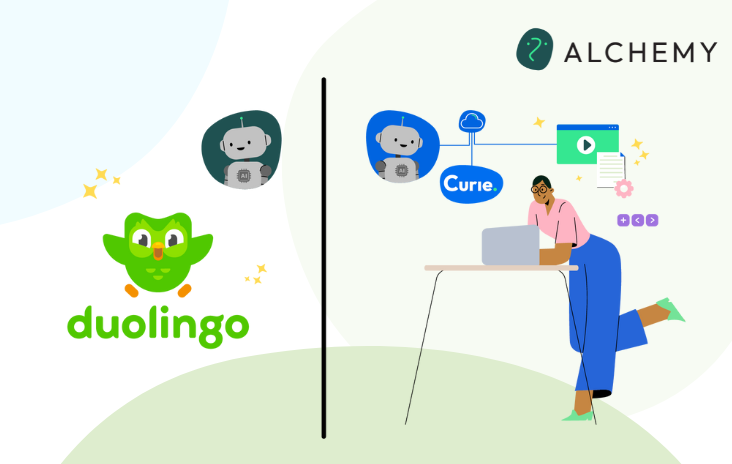Recap
Ethics & Equity with AI: Leading the Way

As Artificial Intelligence (AI) continues to revolutionize higher education, it also brings challenges with ethics and equity that need addressing. In our recent leadership panel, Ethics & Equity with AI: Leading the Way, we met with Vincent Del Casino (Provost and SVP for Academic Affairs, San José State University) and David Weil (VP and Chief Information and Analytics Officer, Ithaca College) to discuss these challenges and gain insights from those leading the charge. This blog provides a comprehensive recap of the webinar, focusing on the main themes discussed and the strategies proposed to foster ethical and equitable AI.
Introduction to Ethical AI
The conversation began with an overview of the importance of ethical considerations in AI development. AI has the potential to transform industries, from healthcare to education, but without careful ethical oversight, it can perpetuate biases and inequalities. The panel stressed the need for a robust ethical framework to guide AI development and deployment, ensuring that AI technologies are designed and implemented in ways that respect human rights and promote social good.
Addressing Bias in AI
One of the central themes of the discussion was the issue of bias in AI systems. AI algorithms often learn from historical data, which can contain biases that reflect existing social inequities. If these biases are not addressed, AI systems can inadvertently reinforce and amplify them. Our panelists discussed various strategies to mitigate bias, including:
- Diverse Data Sets: Ensuring that the data used to train AI systems is diverse and representative of different populations.
- Algorithmic Transparency: Making AI algorithms transparent and explainable to understand how decisions are made and identify potential biases.
- Ethical Audits: Conducting regular ethical audits of AI systems to assess their impact and identify areas for improvement.
Ensuring Equity in AI Access and Benefits
Equity in AI involves ensuring that the benefits of AI technologies are accessible to all, regardless of socioeconomic status, race, or gender. The discussion highlighted several approaches to achieve this:
- Inclusive Design: Designing AI systems with the needs of marginalized communities in mind, ensuring that they are user-friendly and accessible.
- Policy and Regulation: Implementing policies and regulations that promote equitable access to AI technologies and protect against misuse.
- Community Engagement: Engaging with communities to understand their needs and concerns, and involving them in the development process of AI solutions.
The Role of Education and Awareness
Education plays a crucial role in promoting ethical and equitable AI. Our panelists emphasize the importance of integrating ethics into AI education and training programs. This includes:
- Curriculum Development: Incorporating courses on AI ethics and equity in computer science and engineering programs.
- Public Awareness Campaigns: Raising awareness about the ethical implications of AI through public campaigns and workshops.
- Interdisciplinary Collaboration: Encouraging collaboration between technologists, ethicists, and social scientists to develop holistic AI solutions.
Conclusion
The panel discussion underscores the importance of addressing ethical and equity issues in AI development. By focusing on diverse data sets, algorithmic transparency, inclusive design, and education, we can create AI technologies that benefit all of society. The insights shared by our guests provide a valuable roadmap for achieving a more ethical and equitable AI future.
If you’re interested in diving deeper into the discussions, the full webinar is available here.
Watch Now

